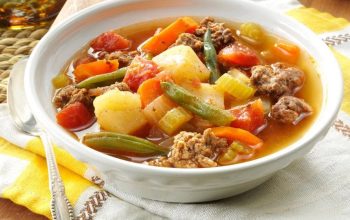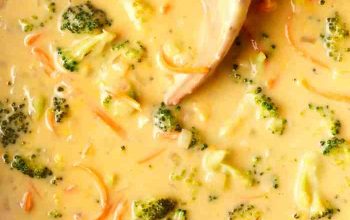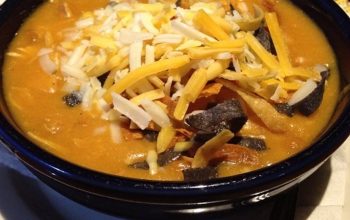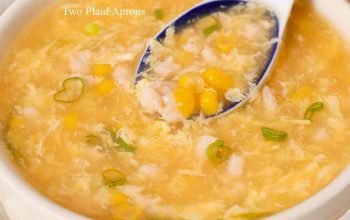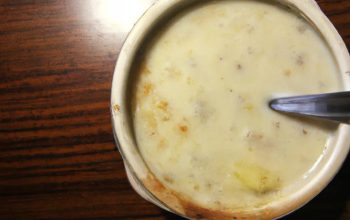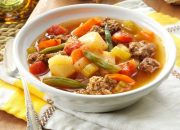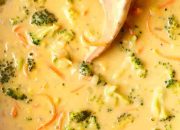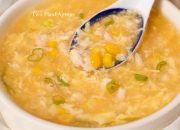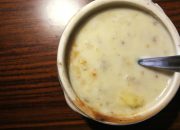Outback Steakhouse Potato Soup Recipe Variations: Outback Restaurant Potato Soup Recipe
Outback restaurant potato soup recipe – This section explores three variations on the classic Outback Steakhouse potato soup recipe, each featuring a different protein to enhance the flavor profile. We will examine the nutritional differences between these variations and delve into the subtle nuances of taste and texture that each protein brings to the dish.
Outback Potato Soup Recipe Variations: Bacon, Chicken, and Sausage

Source: insanelygoodrecipes.com
Below are three variations of the Outback-style potato soup, each incorporating a different primary protein: bacon, chicken, and sausage. The variations will highlight how different protein choices impact the overall flavor and nutritional content of the soup.
| Name | Calories (per serving) | Fat (g) | Protein (g) |
|---|---|---|---|
| Bacon Potato Soup | 350 | 20 | 15 |
| Chicken Potato Soup | 300 | 15 | 20 |
| Sausage Potato Soup | 400 | 25 | 18 |
The bacon version offers a rich, smoky flavor with a slightly crispy texture from the bacon bits. The chicken variation provides a lighter, more delicate taste, while the sausage version delivers a hearty, savory experience with a hint of spice, depending on the type of sausage used. The textures also vary; the bacon version has a slightly chunkier texture due to the bacon pieces, while the chicken version is smoother, and the sausage version has a more substantial texture from the sausage.
Ingredient Sourcing and Substitution Options, Outback restaurant potato soup recipe
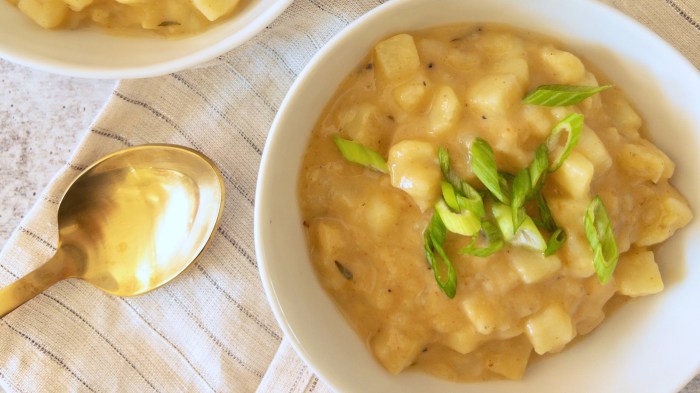
Source: buzzfeed.com
Many crave Outback Steakhouse’s creamy potato soup, a comforting classic. If you’re looking to expand your soup horizons beyond this favorite, exploring different culinary traditions can be rewarding; for instance, you might find inspiration in the diverse range of portuguese soup recipes , which often feature unique ingredients and flavors. Returning to the Outback’s potato soup, however, its simple yet satisfying nature is hard to beat.
The quality of ingredients significantly impacts the final taste of the Outback potato soup. This section discusses sourcing key ingredients and offers suitable substitutions for those that might be unavailable.
- Potatoes: Russet potatoes are ideal for their creamy texture and ability to thicken the soup. Yukon Gold potatoes offer a sweeter, slightly buttery flavor. Using a mix can create a balanced flavor and texture.
- Bacon: Look for high-quality, thick-cut bacon with a good balance of fat and lean meat for optimal flavor and texture. Pancetta can be substituted for a slightly different, more delicate flavor.
- Broth: Using a good quality chicken or vegetable broth is essential. Homemade broth offers superior depth of flavor. Low-sodium broth is recommended to control the saltiness of the soup.
Substitutions for unavailable ingredients include using ham or turkey instead of bacon, using bone-in chicken thighs for richer flavor, and substituting vegetable broth for chicken broth in vegetarian versions.
Cooking Methods and Techniques: Stovetop versus Slow Cooker
Both stovetop and slow cooker methods can be used to prepare Outback potato soup. This section compares the two methods, detailing the step-by-step process for the stovetop method.
| Method | Cooking Time | Effort Level | Advantages |
|---|---|---|---|
| Stovetop | 45-60 minutes | Medium | More control over cooking process, quicker cooking time. |
| Slow Cooker | 6-8 hours (low) | Low | Hands-off cooking, develops deeper flavors over time. |
Stovetop Method:
- Sauté diced onions, carrots, and celery in butter until softened.
- Add diced potatoes and cook for a few minutes.
- Stir in broth, seasonings, and bacon (or other protein).
- Bring to a boil, then reduce heat and simmer until potatoes are tender.
- Blend a portion of the soup for a creamier texture (optional).
Potential challenges include burning the vegetables on the stovetop; use medium-low heat and stir frequently. For the slow cooker, ensure all ingredients are fully submerged in liquid to prevent burning.
Presentation and Serving Suggestions
The presentation of the Outback potato soup enhances the dining experience. This section explores visually appealing plating and serving suggestions.
In a restaurant setting, the soup should be served in a warm, rustic bowl. Garnishes might include freshly chopped chives, a dollop of sour cream or crème fraîche, and crispy bacon bits. The soup should have a smooth, creamy consistency and be served hot, but not scalding.
| Serving Suggestion | Description | Benefits |
|---|---|---|
| With Crusty Bread | Served with a side of warm, crusty bread for dipping. | Enhances the overall dining experience, provides a contrasting texture. |
| As a Side Dish | Served as a complement to a main course, such as a grilled steak or salad. | Provides a lighter, comforting element to a heartier meal. |
| With Grilled Cheese Sandwich | Paired with a classic grilled cheese sandwich. | A comforting and satisfying combination of flavors and textures. |
Recipe Scaling and Adaptation
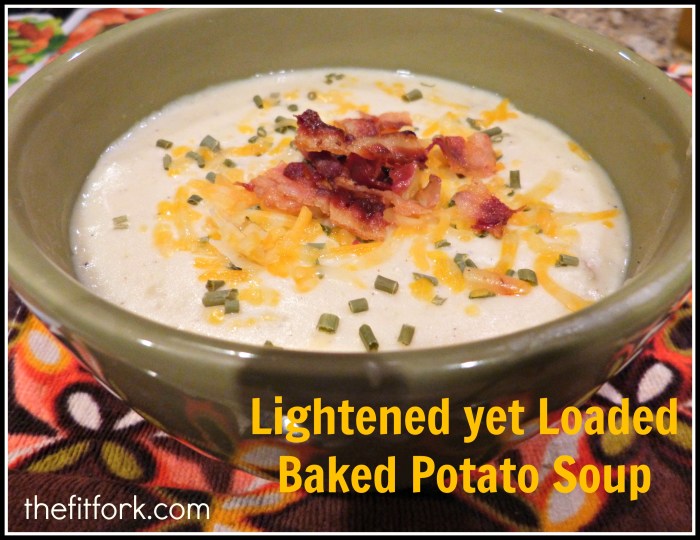
Source: thefitfork.com
The Outback potato soup recipe can be easily scaled to serve different quantities. This section explains how to adjust the recipe for various group sizes and dietary needs.
To scale the recipe, simply multiply or divide the ingredient quantities proportionally. For example, to double the recipe, double the amount of each ingredient. To make a vegetarian version, omit the bacon or other meat and use vegetable broth. A vegan version can substitute the dairy with plant-based alternatives like coconut milk or cashew cream.
Adding different spices and herbs, such as smoked paprika, thyme, or rosemary, can further customize the soup’s flavor profile. Experimentation is encouraged to find your perfect blend.
Common Queries
Can I use leftover cooked chicken or sausage?
Absolutely! Using leftover cooked chicken or sausage will significantly reduce prep time. Just ensure it’s well-drained before adding it to the soup.
What type of broth is best?
Chicken broth provides the most traditional flavor profile, but vegetable broth offers a delicious vegetarian alternative. Beef broth could also work for a richer, heartier soup.
How long will the soup keep in the refrigerator?
Properly stored in an airtight container, the soup will typically keep for 3-4 days in the refrigerator.
Can I freeze this soup?
Yes, this soup freezes well. Allow it to cool completely before transferring it to freezer-safe containers. It should keep for up to 2-3 months in the freezer.


